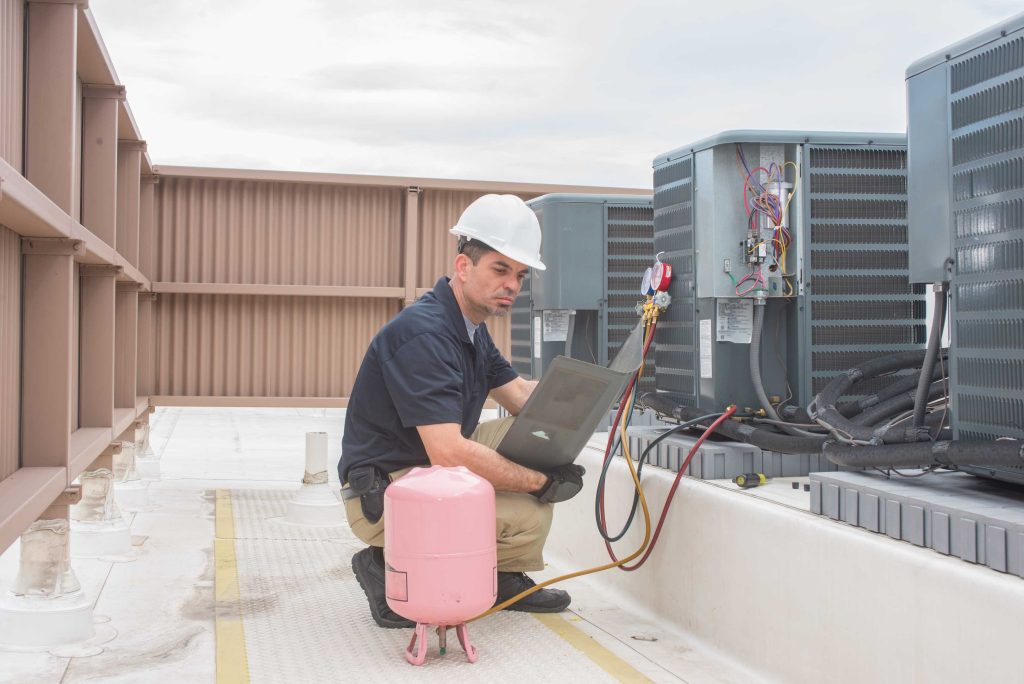The sigh of relief as cool air washes over you on a scorching summer day is unmatchable. We all know the magic of air conditioning (AC), but have you heard of HVAC? People often think that both of them are the same but in reality, they differ a lot. both of them are exceptionally useful and have different utilities.
Let us take you to the similarities and differences and everything else between AC vs. HVAC.
AC is Your Summertime Partner
After a hectic and tiring day at job imagine sweating on a restless summer night. That’s where AC comes into play. It cools you and provides you amazing cooling experience so that you can relax and have a good sleep. AC stands for Air Conditioning, and it’s a system specifically designed to cool your indoor spaces. Its importance can be found in the fact that according to the Energy Information Administration, almost 90% of households in America have air conditioning systems in their homes. But the question arises of how it works. Here is the simplest explanation of how it works:
- Hot Air In, Cool Air Out: Your AC unit comprehensively sucks in warm air from indoor space.
- The Cooling Mechanism: After sucking the hot air, this air is then passed over the refrigerant coils to absorb all the heat. This cooled air is then thrown back into your home through vents and it provides the cooling effects that we enjoy.
- Moisture Removal: Moisture can cause a lot of issues including mold and respiratory issues. Most of the AC units remove some moisture from the air, improving air quality and maintaining a more comfortable environment.
- Seasonal Focus: AC systems primarily function in the summer months.
- Standalone System: An AC unit can function independently and does not need other components for its basic operation.
HVAC is Your All-Season Comfort Champion
HVAC stands for heating, ventilation, and air conditioning. As its name suggests it is a more comprehensive system that goes beyond just cooling. It is a must component in commercial businesses and it is expected that the growth demand for commercial HVAC systems will be around 7% from 2023-2030. This is the highest HVAC demand to date. The following are the important functions it performs:
- Heating: During cold winters when heating is needed your HVAC system can keep you fully warm. It can generate heat through a furnace heat pump or another heating element to generate heat and distribute it throughout your home.
- Ventilation: It also performs ventilation to keep the air fresh and healthy. HVAC systems are composed of fans and ducts to circulate air throughout your home. This is how they remove poor air and bring in fresh air from outside.
- Air Conditioning: The HVAC system is an all-rounder and offers cooling alongside heating as well. In harsh summers when you are full of sweating it utilizes the AC unit to cool you and your home down.
- Seasonal Focus: HVAC systems are operational in all seasons and provide comfort throughout the year. Both of your heating and cooling needs are fulfilled by it.
- Comprehensive System: An HVAC system consists of various interconnected components like ducts, vents, filters, and the main unit. All of these components work together to maintain comfortable temperatures and air quality.
Key Differences in a Nutshell:
| Feature | AC Unit | HVAC System |
| Function | Cooling Only | Heating, Cooling, Ventilation |
| Seasonal Focus | Summer | Year-Round |
| Standalone | Yes (potentially) | No |
| Components | Limited | Multiple interconnected components |
Choosing Between AC and HVAC:
Here are the key takeaways:
- An AC unit can be sufficient for you if you live in a climate with mild winters and scorching summers. It will keep you cool during the hot months.
- If you experience all four seasons then an HVAC system is the ideal choice for you. It will not only cool you down in the summer but also keep you warm and comfortable in the winter while ensuring proper ventilation all year.
Other Factors in Choosing the Right System
- Home Size and Layout: The size and layout of your home will determine the power and configuration of the system you need. You can choose one that suits your needs in the most perfect way. You must also consider the energy consumption of your system. An HVAC system usually consumes more energy than an AC system due to its high capabilities.
- Energy Efficiency: before finalizing any system look for systems with high Energy Star ratings to save money on your power bills.
- Cost: AC units are generally cheaper upfront and have a low installation cost. HVAC systems on the other hand have a higher initial cost but can save money on energy bills in the long run due to their comprehensive functionality.
- Consulting a Professional: If you are confused about choosing the system that fulfills your needs then consulting with an HVAC professional is a great option. They are knowledgeable and experienced and recommend the most suitable system for your home after considering all the factors.
Final Verdict
AC vs. HVAC is an interesting debate. Both have their pros and cons. Now that you know the difference between AC and HVAC, you can make an informed decision about keeping your home comfortable all year round. But no matter which option you are going with, a well-maintained system ensures optimal performance and efficiency. It is therefore necessary to perform regular maintenance to your systems to keep them operating at a great pace.


